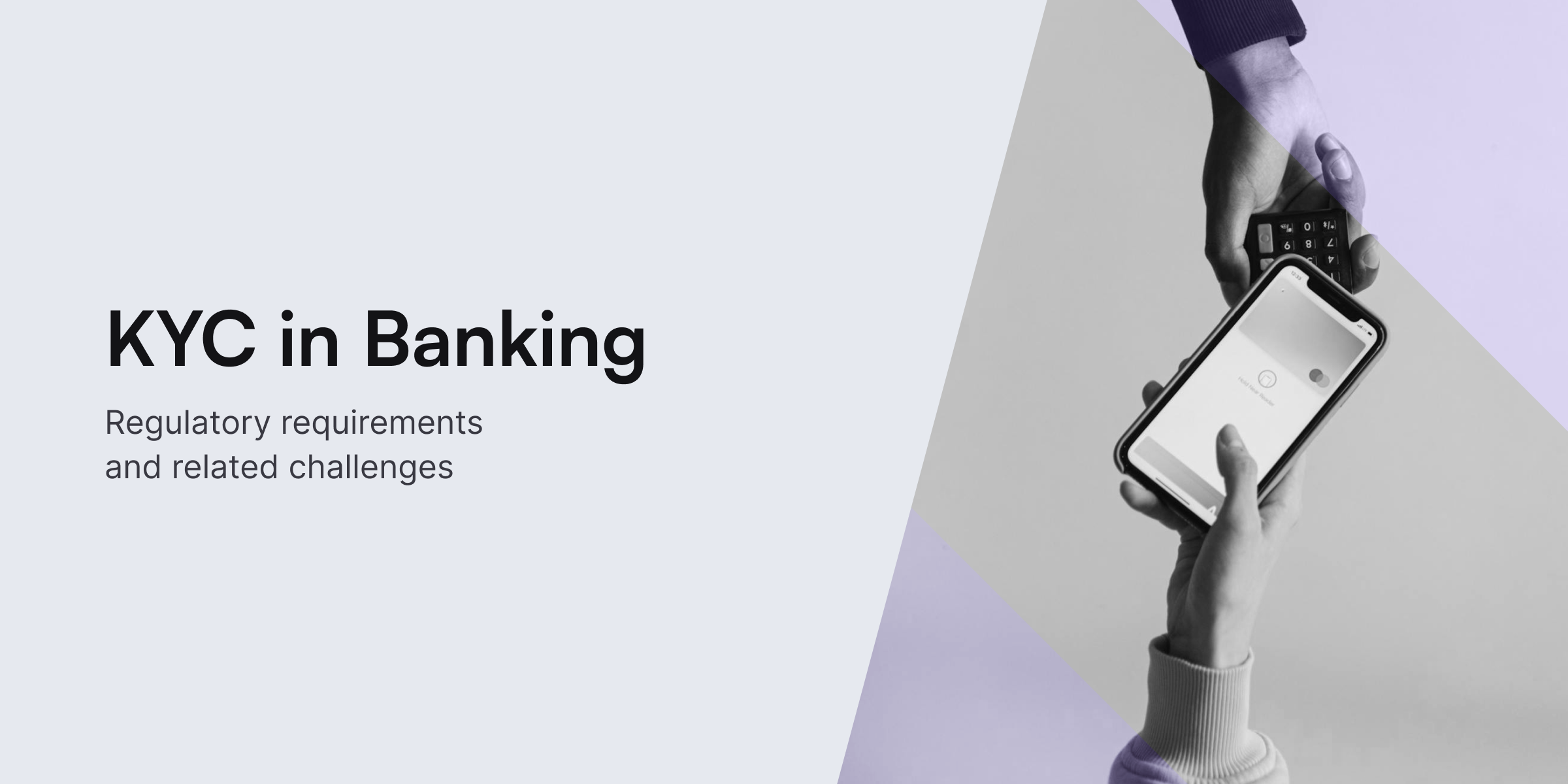RakyatRepublika – In the growing digital era, the financial sector must face new challenges in the management of financial risks and in compliance with regulations. A very important aspect in maintaining the integrity of the financial system is a careful KYC procedure (know the customer). Kyca helps to avoid money laundering and other illegal activities, guaranteeing the customer’s legal identity. However, the traditional Kyc process that depends on the physical documents is generally slow, complicated and requires facial meetings.
Since this edition, the E-KiC (Electronic Know Your Client) service is present to revolutionize the modern financial sector. What is E-Kyc? E-Kyc uses digital technology to simplify and accelerate the process of identification and verification of customers. With E-Kyc, users can load electronically identification documents such as passports and identity cards and use methods such as biometric scan to verify their identities.
Banking Kyc

The E-Kec application in the financial sector offers a significant number of advantages, offering better efficiency, speed, safety and experience for customers. Here are some of the main advantages of E-Kyc:
E-kyc: Permudah Customer Onboarding Perbankan Dengan Teknologi Ai
E-Kyc accelerates the customer’s identification and verification process. Customers can electronically load their identification documents and check the minutes, reduce the time required for a slow and complicated manual process. This helps to reduce waiting times for customers and accelerate registration requests or financial services.
E-Kyc reduces the administrative and operational costs relating to traditional manual processes. Financial institutions no longer have to archive and manage enormous physical documents and spend human resources to manually examine and verify these documents. This translates into significant savings on long -term costs.
E-Kyc uses advanced technology such as face recognition, biometric scan and automatic verification with an existing database. This increases accuracy and reliability in verifying the identity of customers, reducing the risk of human error and falsification of identity. This helps to avoid fraud and financial crime activities.
In the E-Kec process, the identification document and customer data are filed electronically and can be encrypted to maintain safety and confidentiality. This reduces the risk of loss or theft of physical documents that may entail improper use of the customer’s identity. Customer data can also be protected with an additional level of security, such as the verification of two factors and the final encryption.
What Is E-kyc?
E-Kyc allows customers to easily and quickly access financial services without visiting the office of the physical financial institution or fill in complicated forms. This offers a more comfortable and satisfactory experience for customers, increasing their satisfaction with the financial services provided.
E-Kyc helps financial institutions to comply with rigid financial regulations relating to money recycling, terrorism financing and other financial crime activities. By applying a strong KYC procedure and E-Kyc technology, according to regulations, financial institutions can minimize the legal risks and reputation that can arise due to the violations of the regulations.
It is important to note that the functioning of e-work can vary depending on the technology and the platform used by the financial institutions. The E-Kyc system can be supported by technologies such as artificial intelligence, the recognition of models, the processing of natural language and biometric scan to obtain optimal levels of precision and safety. However, in general, E-Kyc consists in the process of identifying and verifying the identity of the customer who is performed electronically using digital technology.

In the context of the identity verification, the open fire and the open bank protocol also allows the use of confident and controlled customers data, helping to ensure that customer data are not used improperly by unauthorized parties and increase the customer trust in the use of new financial services.
Global Movement Towards Digital Kyc In Online Banking
In the digital era, E-Kyc plays a very important role in various sectors, in particular in the financial and e-commerce sectors. The importance of E-Kyc lies in its ability to increase safety using advanced technology to electronically verify the customer’s identity. With a precise verification process, E-Kyc can prevent identity and fraud theft, as well as preventing unauthorized access to financial services and confidential information.
In the context of EKYC, the insurance plays a key role in providing the necessary data, in particular in the verification of financial data such as revenue and expenses. With our data solutions, Fintech can allow users to provide access to financial data from multiple banks with ease and security. This allows the EKYC process to be more efficient and reliable, manually eliminating the need to collect and confirm financial information. With faster and more controlled access to financial data, the identity control process becomes more accurate and simpler, thus helping to improve security and trust in digital financial services.
On the other hand, E-Kyc also simplifies the customer registration process by eliminating manual control and the needs of use of the card. By allowing customers to send information and documents electronically, E-Kec accelerates the integration process and reduces operating costs for businesses. It also provides a better customer experience and reduces the need for physical visits to the office or branch.
In addition, E-Kyc also plays an important role in promoting financial inclusion. In the digital age, access to financial services is increasingly important, especially for those who do not have physical access to banks or complete identity documents. Using E-Kyc, companies can allow the opening of the account and access to online financial services, thus expanding access to financial services to previously limited people.
What Is Kyc? Here’s The End-to-end Kyc Process
Open Banking is the concept of technological application for financial institutions that allow financial institutions (banks and non -internships) to provide access to certain data or resources to other parties. This other part can consist of Fintech startups or other digital services that want to have financial transaction resources. The data you can access can be in the form of customer information, transaction data, etc. with the authorization and total authority of the owner of the data (Customer).
The development of information and communication technology messages has changed the way we perform financial transactions, in particular with the great penetration of the Internet and smartphones. In a nutshell, Kyca ensures that the customer who opens an account with a financial institution is what he intends to be. Kyc is in the heart of the conformity processes that Fintechs must establish to launch any banking product as a service (Baas) on a platform and creates a reference to identify and evaluate transactions.
This article explores the main considerations that you should be aware of a Fintech and how to balance customers’ needs with risk management.

Kyca’s conformity process helps organizations avoid working with people involved in money laundering, fraud or other illegal financial activities. The recycling of money is when someone takes money with criminal actions and makes it seem that the money comes from a legal and legitimate source or transaction. The KYC banking process can also help organizations determine credibility when pertinent.
Digital Kyc: Streamlining Identity Verification (ekyc)
As an extension of doing business and banks with banks subject to BSA, Fintechs must comply with the bank confidentiality law (BSA) and the law on money laundering. The BSA, modified by the law of the United States Patriots, requires banks and other financial institutions to collect specific information from a person and an entity at the time of integration.
Kyc programs are generally based on risk: more risk represents a customer, more information that a financial institution will want to charge. This process is essential to ensure that potential customers are not known bad actors or inadequate customers. By learning the risk profile of a customer, Kyca aims to ensure that customers are behaving as expected. It also allows a financial institution to detect deviations from activities that may indicate fraud or possible suspicious activities relating to financial crimes.
Although a Fintech is not a financial institution neck, because its transactions flow through a traditional banking platform, even a small Fintech should implement a good regulatory compliance program for its activity. By creating a KYC conformity process, Fintechs must balance the need to limit the risk with the need to approve customers. You don’t want to lose customers of the law simply because they do not have the document or do not have time for an exhaustive process. As an emerging Fintech, its Kyc policy will generally be guided at least in part by their appetite at risk for their banking partners. On the other hand, it is prudent to organize your strategy around Kyca that balances risk mitigation while creating equal access to financial products.
As part of the process requested Kyc, banks usually require parts of identification of the information include, among others, full name, residential address, previous address, workplace, driving license, USA. Passport, social insurance number, resident alienated paper, international passport, military identification or other identification between state articles. Banks will require various identification information to confirm someone’s identity before opening your account. Based on the clear language of the patriotic law, banks and other financial institutions can use documentaries and non -documentaries to confirm identity. Most banks have established the collection of minimum requirements to open the storage accounts.
How Blockchain Assists Banks In The Kyc Process?
Traditional banks tend to have more slow and thinner Kyca compliance processes. They have several departments that must review and approve the information of the KYC received. Bank processes can also request candidates to fill paper documents or bring paper documents to the physical branch of a bank. It is not uncommon for a question to be suspended for more than two weeks before your bank.
The banks have also historically rejected some types of identification, such as alien residents and international passports because an international customer base is an offer associated with a higher risk profile. This phenomenon has inevitably created barriers for the certificates that individuals and entities need many financial products as a bank account, creating a. (**)








